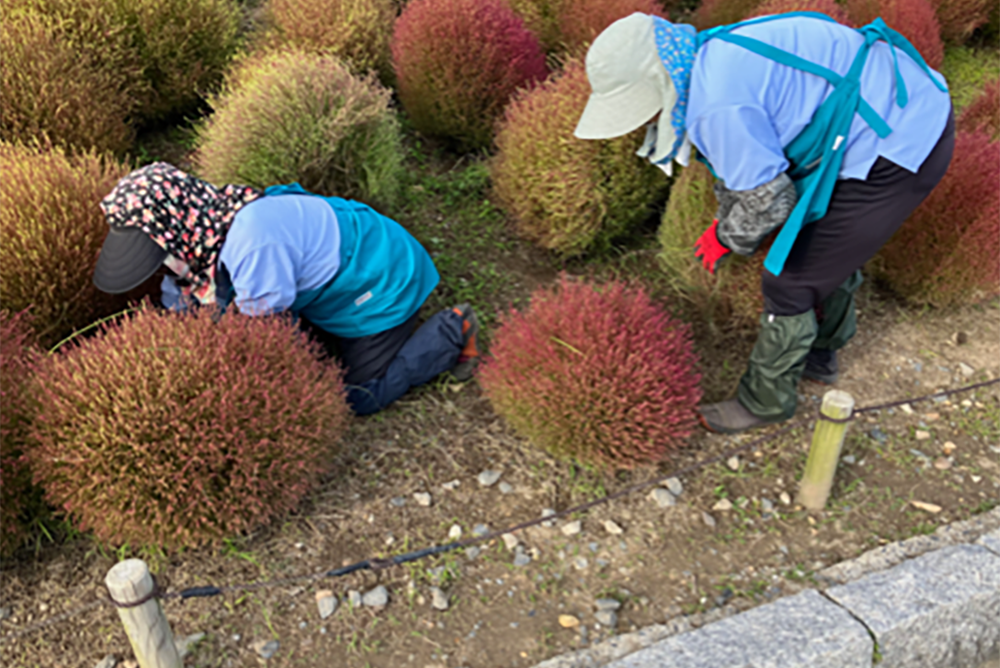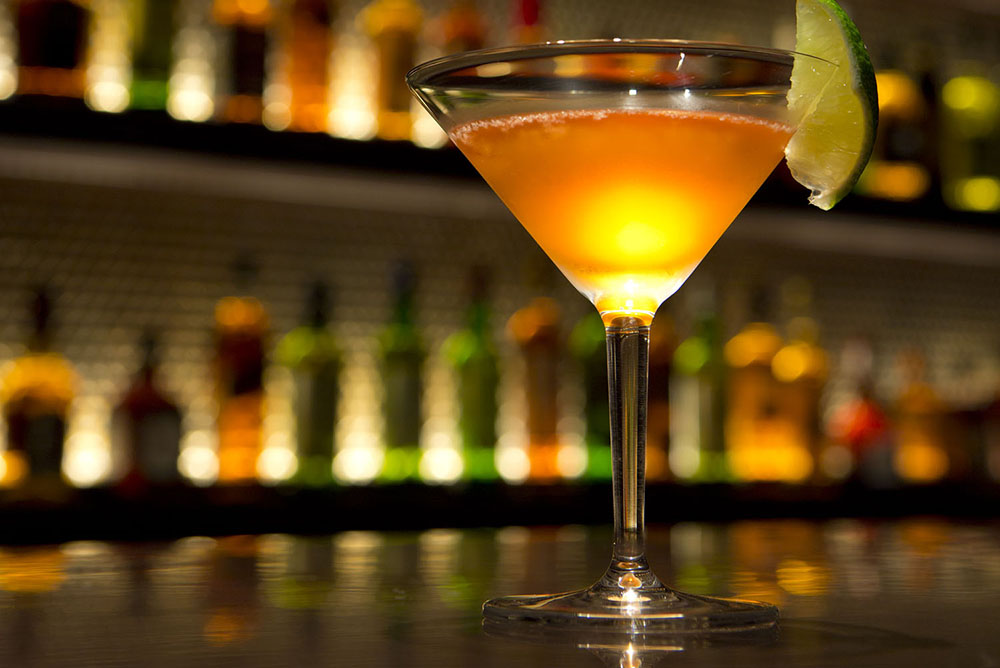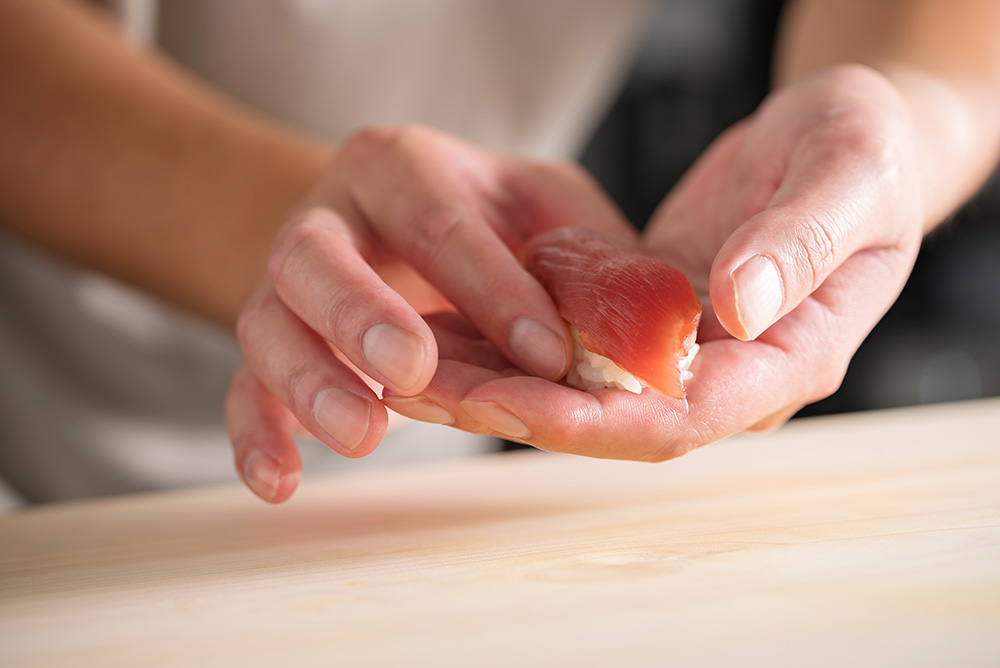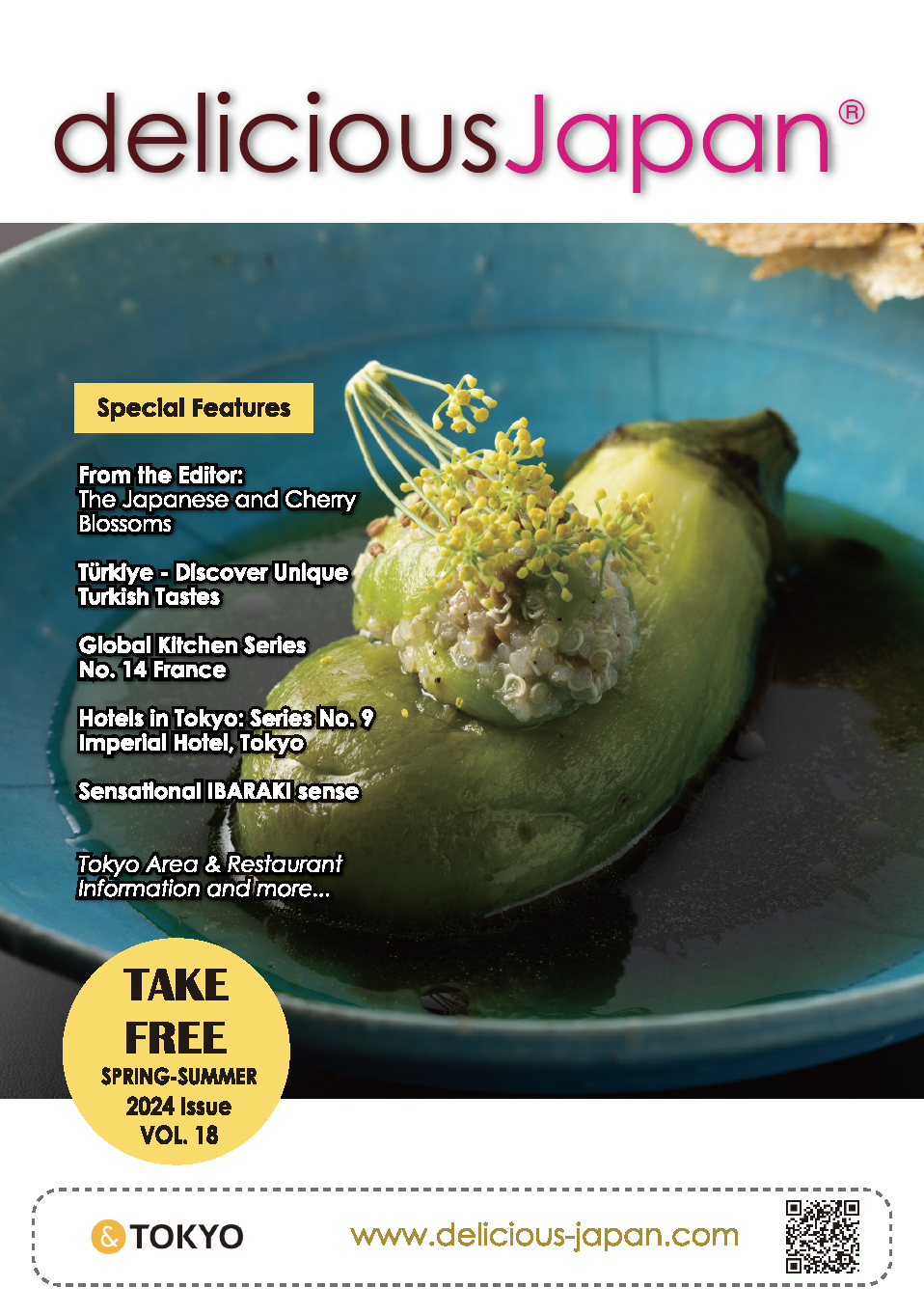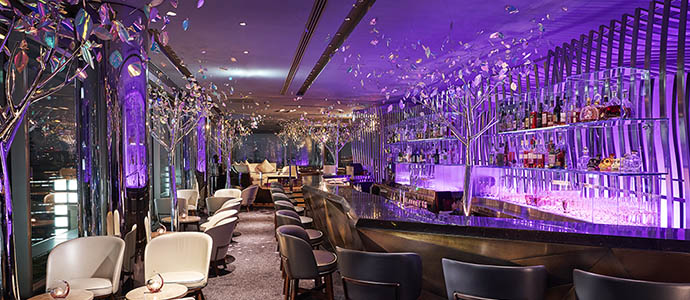
The Peninsula Tokyo
Chef Trepp began his culinary career in 1995 in Switzerland, where he was born and raised. After abundant culinary experiences in many parts of the world, Chef Trepp started to serve as Executive Chef of The Peninsula Tokyo in November 2022.
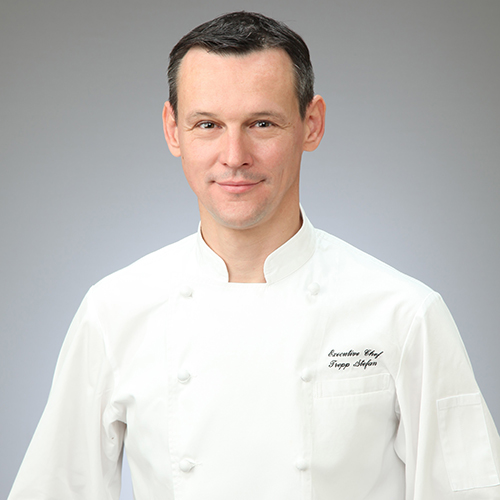
Stefan Trepp
Executive Chef
The Peninsula Tokyo
For the longest time, I have always admired working for The Peninsula Hotels and for The Peninsula Tokyo, in particular. Tokyo has good food, and many people think highly of Peninsula. Being a part of The Peninsula Tokyo is a dream come true. Stepping into the kitchens of The Peninsula Tokyo left a long-lasting impression on me. On my first day at work, I was impressed by the consistency and precision of the team members preparing and plating the food, and I instantly felt the team's passion.
What kind of dining experience can people expect from The Peninsula Tokyo?In the short term, an innovative and exciting restaurant concept, with menu changes and local touches. The goal is to use the best local products, which are plenty in Japan. One of the main objectives I set for myself is to cook for both local and international clients.
We made some changes in the Lobby and are still working on fine-tuning our offerings in the coming months. At Steak & Grill, Peter, we launched our new a la carte last month, focusing on the best Japan offers to ensure and meet quality expectations. In the long run, we are currently looking at our existing concepts and constantly brainstorming internally about how we can continually evolve and modernize our current F&B offerings.
At the moment, it is the Lobster Thermidor tart that my team at Peter restaurant and I came up with. Thermidor is known as a very classic dish, but not ours. We twisted it and packed all the flavors into a crunchy tart served with a creamy Espume sauce and in the butter-poached lobster tail. Or a simple tomato salad served with crispy fried onion and Ponzu sauce. We roast our tomato over charcoal, giving it a unique flavor, and works magically with the combination of the ponzu dressing.
What do you keep in mind most days as executive chef?My parents taught me “how you treat people is how they will treat you”, “respect the food you work with and respect the people & culture you work with”. A fancy title or business card does not get you respect. You need to earn it, by presenting your knowledge and considering what they deserve.
Please tell us about new menu development and recipe development.Of our team’s several efforts, our current focus is the “Plant-based My Ramen by Ippudo” collaboration featuring on our “In Room Dining” menu as of June, in addition to the existing and highly popular Ippudo Ramen. Guests can enjoy delicious ramen and good scenery from the hotel room. I firmly believe this unique project sets us apart from other luxury hotels.
Naturally Peninsula, which is a global Peninsula initiative launched since opening in 2007 is another project we are constantly evolving in. In Tokyo, we incorporated the idea of Shojin Ryori which shares the similar philosophy as Naturally Peninsula. Having Naturally Peninsula inspired by Shojin as one of the options will eventually elevate guests’ experience, and that’s something I would like to focus on moving forward.
Not too long ago, only a few people in Tokyo knew about food diversity. But now, more Japanese people have information about these options and after the easing of covid restriction and return of international guests, demand is growing. Therefore, we focus a lot of effort on Naturally Peninsula. My intuition of food diversity is for everyone to be able to gather around the same table, regardless of their dietary needs. That said, menus should offer vegetarian food and options for allergies and other restrictions.
How would you like to think about and shape the food and hospitality of The Peninsula Tokyo in the future?All of us in the hospitality industry could reconsider our roles in the food system and try to find ways of offering more sustainable food and diets for guests. One way or another the industry will have to adapt, either because climate change increases food insecurity, or because consumers will have understood what is at risk and will seek more sustainable food options. Working towards sustainability by offering dining options that are plant-based or locally sourced makes absolute sense, just like the Naturally Peninsula initiative.
What is genuine Hospitality?Genuine Hospitality means to me, experiencing a true sense of belonging. Giving simple service with a personal touch at every possibility. It is universal and cross-cultural, being friendly, warm, welcoming, and helpful to others, especially strangers. It comes down to fundamental human interactions of being genuine, generous, and sincere. When practiced, everyday Hospitality leads to a more profound sense of connection and belonging with the people around you.
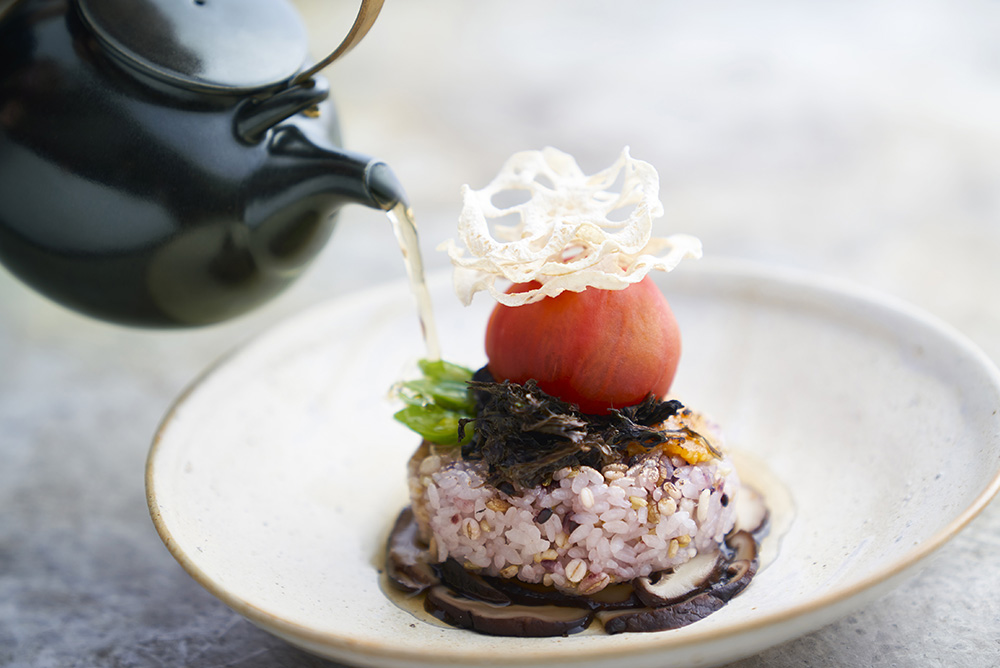
Every month at our bar, we bring you an event series that invites female bartenders beautifully color the Japanese bar scene as guests.
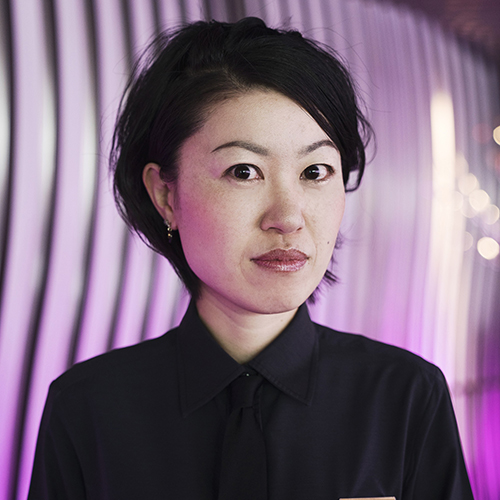
Mari Kamata
Head of Mixology & Bar Peter: The Bar, The Peninsula Tokyo
When I was in high school, I decided to become a hotelier and attended a hotel vocational school. Then, I was advised to take a part-time job at a hotel bar. That was the first time I learned that hotels have bars, and I got interested. I then decided to study drinks and techniques and work at a hotel to become a bartender.
What is your primary role as Head of Mixology & Bar at Peter: The Bar?The main focus is on enhancing the bar customer experience. Other than being the bar manager, I also supervise cocktails. For example, we change the afternoon tea served in the hotel lobby each season, and I supervise the paired cocktails to match.
Are there any strengths or advantages unique to female bartenders compared to their male counterparts?I think that cocktails made by women have a softer mood. I feel that the greatest strength of female bartenders is the ease with which they can create flavors and worldviews that can be perceived from the atmosphere.
What is the variety and extent of the food menu that accompanies the drinks at Peter: The Bar?I think it is quite substantial. There are snacks, but there are also meat dishes such as grilled beef skewers for people who want to enjoy a meal. We have many overseas customers these days, and they often enjoy both an aperitif and main course. So the variety of snacks and dishes in the bar is one of the strengths of Peter: The Bar, which is both a restaurant and a bar.
What kind of bar time do you want your customers to spend at Peter: The Bar?I want them to have a comfortable time so that they will think, "I want to come back, it was good, and I had fun". Some customers prefer to enjoy their time alone without talking, while others prefer to chat with the bartender. We will be happy if we can accommodate each customer and make them feel comfortable when they leave. Therefore, it is important for us to carefully observe our customers' mood, the way they look at us, and the way they order, in order to guess what they are looking for.
So what's your top selling point for Peter: The Bar?The Peninsula as a whole is based on the concept of "offering something rooted in the land," and its strength is that it delivers things in Tokyo that can only be experienced in Tokyo. For example, we have created an original Japanese whiskey and a Peninsula-exclusive gin. For the gin, we were involved in all aspects of the production process, including distillation and botanical collection. In addition, the design concept of Peter: The Bar is based on trees, with the hope that guests will enjoy each moment under the trees. Therefore, we also offer a wide range of unique cocktails, such as The Zero Proof, around 20 non-alcoholic cocktails that can be enjoyed without alcohol and have a unique story to tell, and Totonou Cocktails, which are designed to make people feel as healthy in body and mind as possible.
What are your aspirations for the future?The first and most visible part is the success of the event I have planned called "Queen of the Night". I came up with it as an idea for organizing an event that only I could do. Female bartenders from around Japan and abroad will be invited to prepare cocktails. The "queen of the night" is a cactus known to bloom only through one night from dusk, and I chose the name of the event with the idea of offering an experience that can only be experienced for exactly one night. I hope this will be an opportunity to promote the presence of female bartenders to the public.
As an invisible aspect, I would like to focus on bartender training. I want to strengthen the ability of each bartender to build relationships with our customers. That includes increasing the number of regular customers, getting to know the guests staying at the hotel, and so on. The current team is a group of energetic and talented bartenders, who indivudually has very good personalities, and I would like to develop them more and make them a stronger team by the end of the year. Recently, the number of overseas customers has been increasing. I also have the bartenders work on improving their English skills so that they can interact with those customers in the same way as with Japanese customers.
I believe it is to perceive and understand. With customers with a variety of needs, we must fundamentally observe and understand them in order to answer their needs. I also became a licensed psychotherapist, which I thought I could apply to this bartending job.

